Jun 3, 2025 11:25 AM
In Memoriam: Al Foster, 1943–2025
Al Foster, a drummer regarded for his fluency across the bebop, post-bop and funk/fusion lineages of jazz, died May 28…
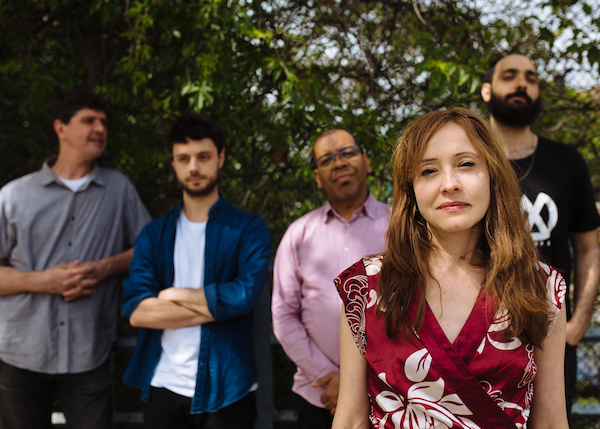
Pianist Marta Sánchez augments her quintet for El Rayo De Luz, the pianist’s fifth leader date.
(Photo: Tayla Nebesky)In conversation, Spanish pianist and composer Marta Sánchez dispenses ideas that seem to ripple and flow endlessly—not unlike the music she’s been invested in for more than a decade.
Classically trained at Madrid’s Real Conservatorio Superior de Música, Sanchez has sought out a chamber orchestra-evoking sound on her most recent quintet recordings, which were preceded by a trio set in 2008 and a quartet date in 2011. What’s remained constant is the bandleader’s desire to foster a dialogue among herself and her bandmates through forgiving structures and uniquely placid textures.
For her latest recording, El Rayo De Luz (Fresh Sound New Talent), Sánchez realigns her quintet—with two frontline saxophonists, altoist Román Filiu and tenorist Chris Cheek—and reaches for the light.
From her home in New York, the bandleader recently delved into the details of her compositional process and how she met one of her constant musical companions.
The following has been edited for length and clarity.
What in your music remains from your time growing up and performing in Spain? And what artistically has emerged since moving to New York?
I had a really strong classic formation in composition, studying at the conservatory—and years of harmony and counterpoint. I think you can see that a bit. Also, there are some people that influenced me a lot like Guillermo Klein; I studied with him when he was living in Barcelona. I used to fly to Barcelona to work with him.
But at the same time, New York is special, musicwise, and you have access to different kinds of music and to play with different kinds of musicians. It opens up a lot of other things. I can’t tell anymore what’s from here or from there, but I feel my music is getting more abstract—a little darker. I’m trying to avoid the obvious.
Yet you have a lot of compositions that seem to revolve around light: “Copa De Luz” and “El Rayo De Luz,” the title track from your latest album.
A title is just a title! And also, “El Rayo De Luz” is one of my brightest compositions, it’s kind of the happiest composition of the recording. I actually think [my compositions are] getting darker in the sense that the harmony is getting darker, less consonant and less “nice for the ears.”
Most of the time, the titles come afterward, and they’re so random. Like, I’m in a room, and the light is coming in through the window. That becomes “El Rayo De Luz.” “Dead Flowers,” I had some flowers in a jar—-my boyfriend had bought me some flowers—-and they were dead. Of course, somehow it is related, because I chose those words and not others. Somehow ... what the words evoke relate to the piece.
In terms of your classical training, the pieces you compose seem quite structured. Your work’s been called “chamber orchestra jazz.”
When I heard that, I liked the comparison because I agree with that—it’s jazz because there is improvisation involved. But as to what I have in mind when I’m composing—I wrote a lot of chamber music when I was studying at the conservatory and I played a lot of this music—it’s a big influence, for sure.
How does that actually play out—to approach jazz composition through the lens of a chamber orchestra?
When you have a large group it’s different. But with a small group—like a quintet—everybody has a lead sheet and you have some melody and some harmony and from there, it moves on. Or maybe you have a little bit of harmony between the horns and that’s it.
When I write music for a quintet, everyone has their parts carefully written. Each part matches with the other part in a singular way: The melody goes from one instrument to the other instrument, and it’s very specific. There’s still room for people to bring things, and there are obviously solos. There is no one melody that one instrument takes, and the other instruments just add harmony or something rhythmic that goes with it. The melody is shared by everybody.
I’m trying to create different textures with instruments, instead of always creating the same texture. And these instruments create these sounds that change the sound of the band. I’m thinking more like what we would call a “classical composer.”
There seem to be intertwining saxophone lines moving through many of the pieces on El Rayo De Luz, as well as in your earlier work.
Well, I guess that has become my signature. And that’s what makes what I do a little different from what you normally hear in a jazz quintet.
I’m trying to take advantage of the fact that I have two horns, and create something with them, instead of just making a horn do harmony for another horn that is taking the melody. I try to take advantage of the instrumentation that I have, and the textures that they can create. I think a lot about textures, and how I can create different ones. Normally, the saxophones are the ones that carry the most texture.
For “Nenufar”—that means “water lily”—I was inspired by a Debussy piece. I liked the way [Debussy] was playing a line, but the melodies were totally in a different kind of meter; it seemed like they were floating over that line. I wanted that contrast. The rhythm came first, and the mood. Then I just chose notes that I wanted. Then the rest of the piece came. But, sometimes, it’s just an effect that I hear. Normally, what I have in mind is the texture and mood of the piece.
In your work, you often have involved other Latin musicians—Cubans, Argentinians, Chileans. Is that a conscious choice, part of your musical vision?
Well, Román Filiu came to Madrid years ago, as well as other Cuban musicians. I played with them because they’re amazing. They played at a level and in a way that, in my opinion, no one in Madrid was playing. And they brought so much to my music—-they were guides for my music. Whenever I am in Madrid, I play with them.
Filiu, I chose because I love his sound, the way he plays. He’s been my friend since he lived in Madrid. But I think it’s more of a coincidence—this generation of Cuban musicians are really strong players and they were in Madrid. DB
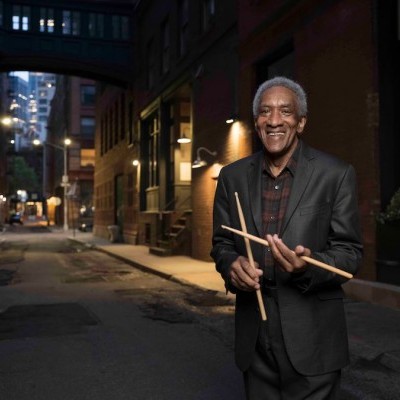
Foster was truly a drummer to the stars, including Miles Davis, Sonny Rollins and Joe Henderson.
Jun 3, 2025 11:25 AM
Al Foster, a drummer regarded for his fluency across the bebop, post-bop and funk/fusion lineages of jazz, died May 28…
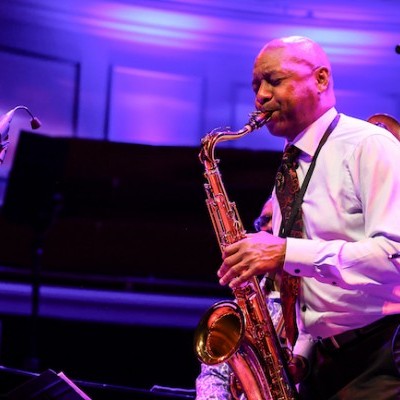
“Branford’s playing has steadily improved,” says younger brother Wynton Marsalis. “He’s just gotten more and more serious.”
May 20, 2025 11:58 AM
Branford Marsalis was on the road again. Coffee cup in hand, the saxophonist — sporting a gray hoodie and a look of…
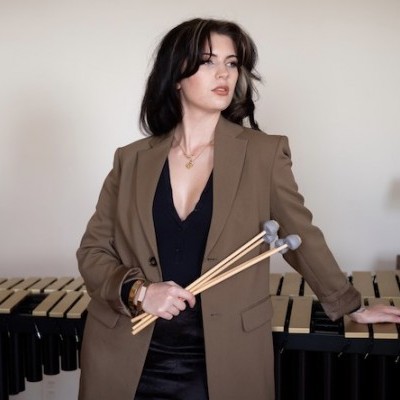
“What did I want more of when I was this age?” Sasha Berliner asks when she’s in her teaching mode.
May 13, 2025 12:39 PM
Part of the jazz vibraphone conversation since her late teens, Sasha Berliner has long come across as a fully formed…

Roscoe Mitchell will receive a Lifetime Achievement award at this year’s Vision Festival.
May 27, 2025 6:21 PM
Arts for Art has announced the full lineup for the 2025 Vision Festival, which will run June 2–7 at Roulette…
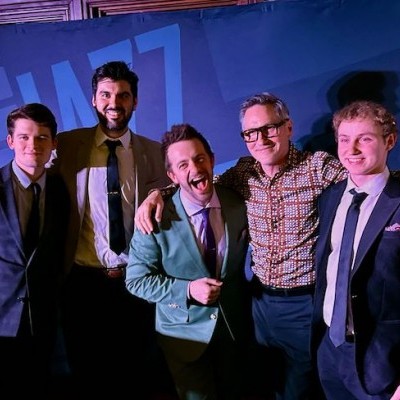
Benny Benack III and his quartet took the Midwest Jazz Collective’s route for a test run this spring.
Jun 3, 2025 10:31 AM
The time and labor required to tour is, for many musicians, daunting at best and prohibitive at worst. It’s hardly…